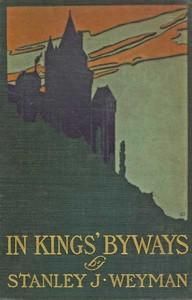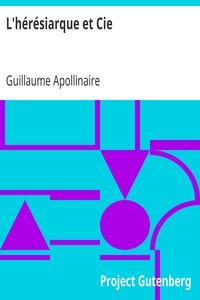Read this ebook for free! No credit card needed, absolutely nothing to pay.
Words: 58836 in 23 pages
This is an ebook sharing website. You can read the uploaded ebooks for free here. No credit cards needed, nothing to pay. If you want to own a digital copy of the ebook, or want to read offline with your favorite ebook-reader, then you can choose to buy and download the ebook.
In his Prologue affirming of reason, That artificers having exercise, May chaunge & turne by good discretion Shapes & formes, & newly them devise: As Potters whiche to that craft entende Breake & renue their vessels to amende.
...
And semblably these clerkes in writing Thing that was made of auctours them beforn They may of newe finde & fantasye: Out of olde chaffe trye out full fayre corne, Make it more freshe & lusty to the eye, Their subtile witte their labour apply, With their colours agreable of hue, To make olde thinges for to seme newe.
Unto this rude werke myne auctours these shalbe: Fyrst the true legende and the venerable Bede, Mayster Alfrydus and Wyllyam Malusburye, Gyrarde, Polychronicon, and other mo in deed.
To select from this large body of literature, "made," "compiled," "translated," only such works as can claim to be called, in the modern sense of the word, "translations" would be a difficult and unprofitable task. Rather one must accept the situation as it stands and consider the whole mass of such writings as appear, either from the claims of their authors or on the authority of modern scholarship, to be of secondary origin. "Translations" of this sort are numerous. Chaucer in his own time was reckoned "grant translateur." Of the books which Caxton a century later issued from his printing press a large proportion were English versions of Latin or French works. Our concern, indeed, is with the larger and by no means the least valuable part of the literature produced during the Middle English period.
In to Inglis tong to rede For the love of Inglis lede, Inglis lede of Ingland.
But beyond this there was little to encourage the translator. His audience, as compared with the learned and the refined, who read Latin and French, was ignorant and undiscriminating; his crude medium was entirely unequal to reproducing what had been written in more highly developed languages. It is little wonder that in these early days his English should be termed "dim and dark." Even after Chaucer had showed that the despised language was capable of grace and charm, the writer of less genius must often have felt that beside the more sophisticated Latin or French, English could boast but scanty resources.
He made this lyfe in ynglishe soo, As he satte in prison of stone, Ever as he myghte tent therto Whane he had his lordes service done.
One is tempted to let the fancy play on the combination of circumstances that provided him with the particular manuscript from which he worked. It is easy, of course, to emphasize overmuch the scarcity and the inaccessibility of texts, but it is obvious that the translator's choice of subject was largely conditioned by opportunity. He did not select from the whole range of literature the work which most appealed to his genius. It is a far cry from the Middle Ages to the seventeenth century, with its stress on individual choice. Roscommon's advice,
Examine how your humour is inclined, And what the ruling passion of your mind; Then seek a poet who your way does bend, And choose an author as you choose a friend,
seems absurd in connection with the translator who had to choose what was within his reach, and who, in many cases, could not sit down in undisturbed possession of his source.
Moreover, part of the confusion had often arisen before the manuscript came into the hands of the English translator. Often he was engaged in translating something that was already a translation. Most frequently it was a French version of a Latin original, but sometimes its ancestry was complicated by the existence or the tradition of Greek or Hebrew sources. The medieval Troy story, with its list of authorities, Dictys, Dares, Guido delle Colonne--to cite the favorite names--shows the situation in an aggravated form. In such cases the earlier translator's blunders and omissions in describing his source were likely to be perpetuated in the new rendering.
Free books android app tbrJar TBR JAR Read Free books online gutenberg
More posts by @FreeBooks


: Tom Swift and the Visitor From Planet X by Appleton Victor II - Swift Tom (Fictitious character) Juvenile fiction; Earthquakes Juvenile fiction; Extraterrestrial beings Juvenile fiction Children's Book Series









